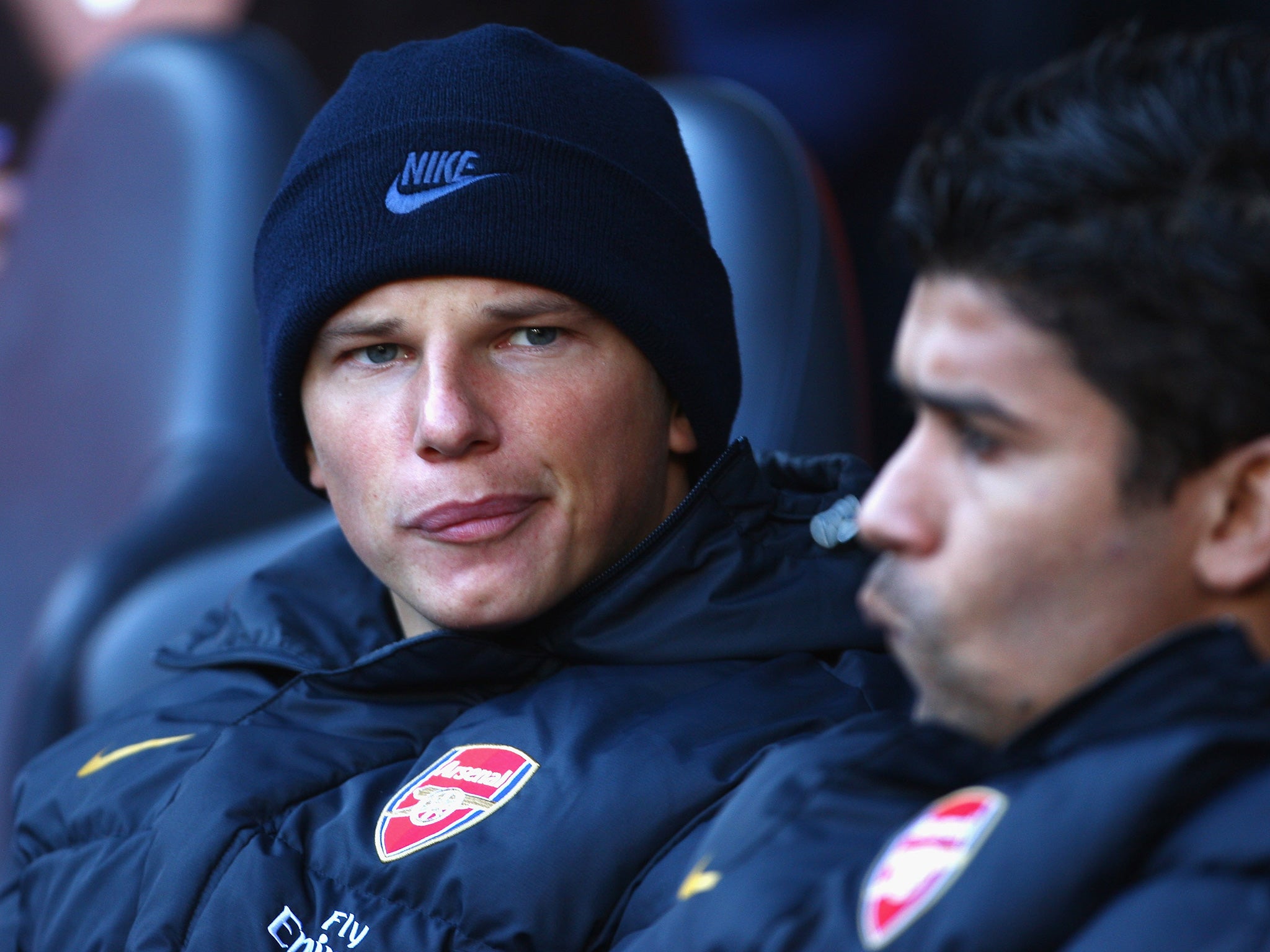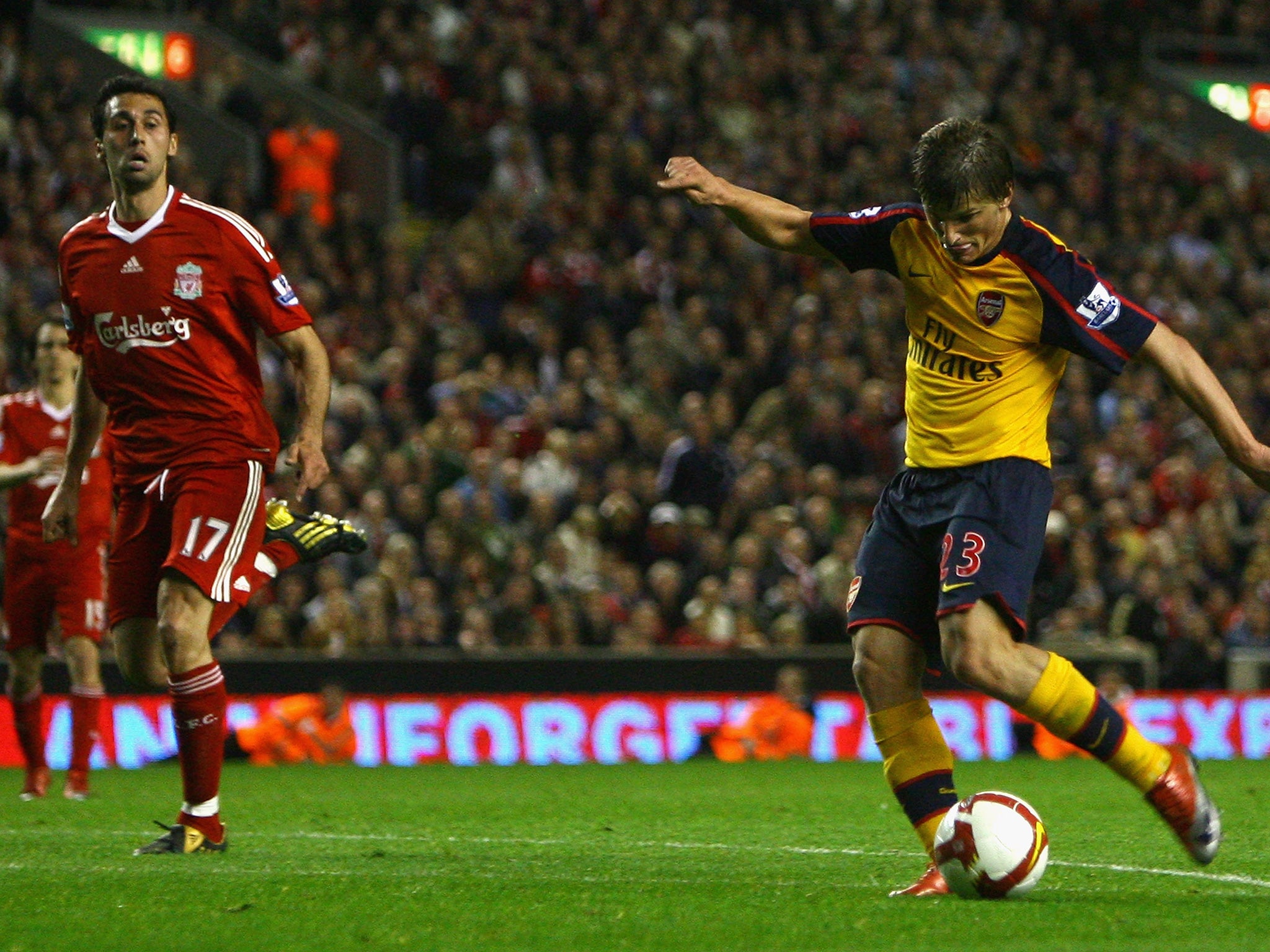Arsenal news: How fear of Vladimir Putin caused Gunners to pay £15m for Andrei Arshavin
The Russian premier directly influenced the deal between his boyhood club and the Gunners, a new book on the transfer system reveals

The influence of Russian president Vladimir Putin lay behind Arsenal paying £15m – twice what they had originally wanted - for Zenit St Petersburg’s Andrei Arshavin in one of the most convoluted deals the club has known, a new book which sheds light on the workings of the transfer system has revealed.
Zenit are Putin’s boyhood club and run by the president of the state-owned energy leviathan Gazprom, who answered directly to the president. It was his controlling influence which led to the Russians refusing to compromise on price, despite Arsenal manager Arsène Wenger’s belief that by controlling the negotiations he could secure a breakthrough that would satisfy Putin.
The extraordinary three-month struggle to secure Arshavin’s signature – revealed in ‘The Deal’, the new autobiography by agent Jon Smith - ultimately succeeded when Uzbek-born billionaire and 30 per cent Arsenal shareholder Alisher Usmanov was asked to use his Russian connections to secure a breakthrough. But Usmanov had to do so without any of the Arsenal hierarchy knowing, as the club believed that it should be a straight price negotiation with no attempt to pull strings.
Smith’s description of the deal - within the pages of a book which shines a light on a much discussed though little understood aspect of the football business – reveals the way in which Wenger likes to be deeply involved in the course of individual transfer.
“Arsene was involved in every step,” Smith states, in the book he has co-written with London Evening Standard journalist James Olley. “Every conversation with Arsenal was based around how Arsene was feeling and things he thought they could do to bridge the gap.” Wenger suggested handing Zenit a game at the following summer’s pre-season Emirates Cup competition, which could have been worth half a million pounds to the side in revenue. “Arsene was totally in control on that environment.”
At the time of the complex negotiations, Arsenal chief executive Ivan Gazidis was only a few weeks into his job, having been persuaded not to take the job of chief executive at Manchester City – a job which went to Garry Cook.
Gazidis was “learning the ropes”, Smith writes. So, when Smith had established contact with Arshavin in the most random fashion – Smith’s brother played football with the player’s agent Dennis Lachter – it was he and Arsenal’s traditionalist managing director Ken Friar who began discussing a player Wenger badly wanted.
Friar and Arsenal were unwilling to countenance any back channel contact with the player. When Smith made to reveal to Friar what the striker was thinking, he would say: “I don’t want to know!” But Smith reveals that his is an often imperative part of the transfer business, much as head-hunters approach targets before hiring them.

“Technically, we might not have been given permission [to speak to Arshavin],” Smith writes. “But that’s my job for a club and player at any given time. I am the bridge that the club can’t cross. In most cases of employment exchanges in any walk of life, the potential employee and employer have had some sort of prior connection.
“There has to be a person ready to break the conventional ethical boundary of not pinching other people’s staff and actually make contact. So we do sometimes facilitate that in football.”
Even with the involvement of Usmanov, which was discreetly put in place by Arsenal vice chairman David Dein, the struggle to agree a price with the Russians was so protracted that Smith ultimately bridged the £1.2m gap on price between the two clubs himself in the dying hours of the 2009 winter transfer window. He gambled on the club compensating him when the dust had settled.
Ultimately, it took the elements to help bring the player to North London. The Premier League put back the transfer deadline by 24 hours because of heavy snow and the eleventh hour deal was deemed to be concluded in time. Arshavin started for the club 97 times, scored 31 goals and within three years was back at Zenit, first on loan and them permanently.
'The Deal, Inside the World of a Super-Agent' by Jon Smith with James Olley (Little, Brown).
Join our commenting forum
Join thought-provoking conversations, follow other Independent readers and see their replies
Comments
Bookmark popover
Removed from bookmarks